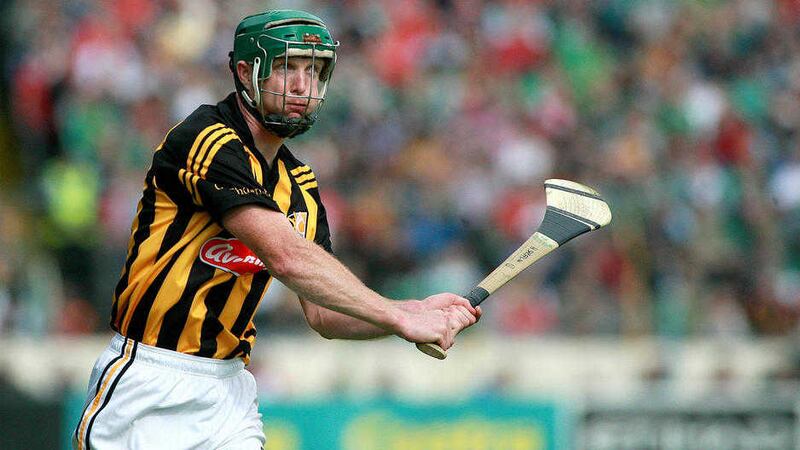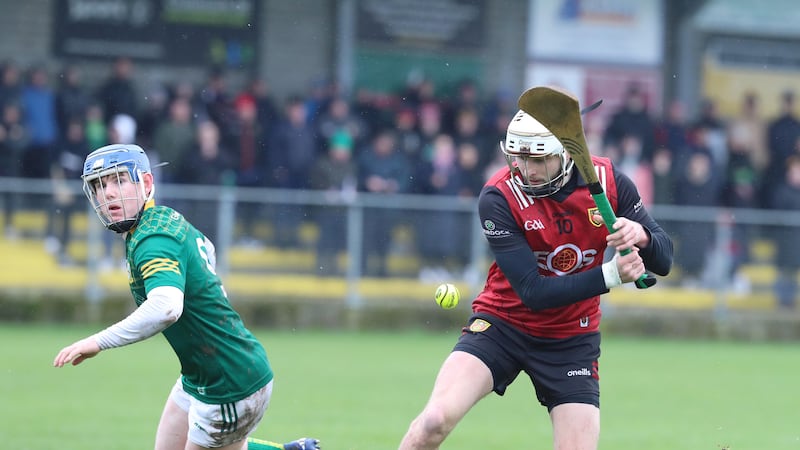IN CHAPTER eight of Henry Shefflin’s autobiography, entitled Hurling is a Simple Game, the Kilkenny legend transports the reader back to two weeks prior to the 2006 All-Ireland quarter-final against Galway.
The squad were in Monart in Wexford on a training weekend and, in a player-management meeting, some hard truths were spelt out. Brian Cody went for the jugular. He began talking about some players in the room who had Hurler-of-the-Year awards and who needed to get their act together. Sitting there, Shefflin knew there were only two people Cody could be referring to – JJ Delaney and him. Shefflin was bulling. To him, Cody had been having a personal go at him in front of everyone else.
When Shefflin got home, Cody’s words were still niggling him. Over and over, he found himself saying to his wife Deirdre, ‘I’ll show him’. Writing in his book, Shefflin admits, if he was asked to pick one example of his management that defined Cody’s greatness, that weekend in 2006 would probably be it.
“He had me exactly where he wanted me,” writes Shefflin.
For years and years, everyone has been trying to gain some insight into the Kilkenny dynasty; what powers the machine, what goes on behind the scenes, what makes the players tick, how they stay motivated, how they keep winning. Everyone is eager to learn more, especially about Cody, but nothing has ever really been revealed. Even in his own biography, Cody said little or nothing in a few hundred pages.
When Cody has been so successful, why should he really change? He learned a harsh lesson before the 1999 All-Ireland – his first as manager – which Kilkenny lost to Cork. Cody had no real experience of dealing with the hype and the media machine and it was only when he looked back afterwards that he realised it had got out of hand. It never did again.
Nothing is ever leaked from the camp. If players get annoyed and they walk away – like Charlie Carter did in 2003 when he was captain – Cody doesn’t bat an eyelid. When the GPA had planned a protest before the 2002 league final between Kilkenny and Cork, Cody ruthlessly extinguished Kilkenny’s part in it.
Nothing is ever leaked. Everything is kept tight. When Richie Hogan was forced to sit out training after tearing a quad muscle before this year’s All-Ireland final, some of the players weren’t even aware of the injury. They thought he was still resting a back injury picked up before the semi-final against Waterford.
Shefflin doesn’t exactly lift the lid on the Kilkenny chest of secrets, but he still gives a very interesting insight into the mentality and culture which has powered the most dominant team in Irish men’s sport over the last 15 years. Combined with the honesty with which he reflects on his own career, this is an excellent book.
Like every top sportsperson, Shefflin is driven by an insatiable desire, a hunger to get better, to want more, to demand more of himself. As he got better, the higher he climbed, the demands he placed on himself got greater. He felt compelled to endlessly back up what he just did. Being so consistent and so brilliant increases expectation and such presumption came to feel like a millstone in his life around 2009 and '10, until Shefflin found a way of dealing with it.
In chapter 14, Shefflin speaks about the chase for four in-a-row in 2009 and how All-Ireland final week almost broke him. Three days before the game, Shefflin found himself sinking into some kind of personal panic. After coming home from his in-laws, Shefflin went upstairs, lay down on his bed and felt like weeping. His legs were like jelly. The strength was gone from them. The pressure was overbearing.
“What am I going to do?” he asked his wife. “I can’t f***ing play if I’m like this.”
Shefflin’s penalty that Sunday, scored under huge pressure, was decisive to the result, but proving points to himself, as much as Cody or anyone else, is a constant theme. After being bullied in the 2001 All-Ireland semi-final by Galway’s Greg Kennedy, Shefflin started coming home from college in WIT on Saturday’s to work as a labourer with his brother-in-law. It was purely a hurling decision.
“Lifting blocks and mixing cement on frosty mornings asked the questions needed asked of my resolve to toughen up as a hurler and a man,” writes Shefflin.
Despite all his talents, that workrate, that appetite for hard work separated Shefflin from everyone else. It also probably endeared him more to Cody. Overcoming such desperate injuries and maintaining such a high standard are testaments to Shefflin’s greatness. But they also underline Shefflin’s immense mental strength and the steel running through his character.
When Kilkenny won the All-Ireland last month, the vote for RTÉ man-of-the-match was four-three between two Ballyhale Shamrocks players – TJ Reid and Michael Fennelly – with Fennelly just scraping home. It is remarkable that two players from the same club could reach that level on hurling’s biggest day but, like Shefflin, they don’t come from any ordinary club.
Ballyhale now top the All-Ireland club roll of honour with six titles, but Shefflin’s awareness of tradition, lineage and history is another huge theme of the book. In the 2007 All-Ireland semi-final against Toomevara, Shamrocks were being blown off the pitch until they finally hit a groove, or “an insane confidence” as Shefflin puts it.
“It was as if we considered this to be Shamrock’s natural environment: an All-Ireland final on St Patrick’s Day.”
Understanding that lineage and history was important to Shefflin’s development as a player, but it also inspired him to create his own history, which he definitely did. Becoming one of the greatest hurlers of all time, and the most decorated, is a huge legacy to leave, but Shefflin’s carved that unique path in the most natural way possible – through a huge love for the game.
It is what made Shefflin great. It is what continues to make Kilkenny great.







